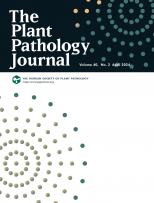The journal adheres to the guidelines and best practices published by professional organizations, including the Core Practices of Committee on Publication Ethics (COPE; https://publicationethics.org/), the Recommendations of International Committee of Medical Journal Editors (ICMJE; http://www.icmje.org/), and the Principles of Transparency and Best Practice in Scholarly Publishing (https://doaj.org/bestpractice). Further, all processes of handling research and publication misconduct shall follow the applicable COPE flowchart (https://publicationethics.org/resources/flowcharts). With regards to other publishing ethics, refer to the homepage ethics section (http://ppjonline.org/policy/).
- 1. Research Ethics
- All the manuscripts should be prepared under strict observation of research by following research ethics. Scientific misconducts relevant to research activities include fabrication, falsification, plagiarism, including inappropriate authors, in the process of proposing, performing, and publishing the research. “Fabrication” refers to the acts which produce false information without experimental data or findings. “Falsification” refers to the acts which artificially manipulate, modify, omit or change data and results on purpose. “Plagiarism” refers to the acts which pirate others idea, research contents, and research results without justifiable approvals or quotations. Inappropriate authors mean to include an individual’s name as an author who has not contributed significantly to either the research or contents of a paper as a token of gratitude or for reason of honorable treatment, or not to grant authorship to a person who has academically contributed to research contents or results, without right reason. Also, deliberate interference in procedure for the investigation of misconduct in research and deviation from commonly accepted practices within the scientific community are included in unfair research activities. If you take notice of any unethical irregularities to The Plant Pathology Journal content, please get in touch with Editorial Office. It is highly recommended that the authors pursue individual “Plagiarism” check and attach the similarity report, before manuscript submission, by using a specific program provided by their own institutes or a free text similarity service. Any scientific misconducts and issues relevant to research ethics will be preliminarily investigated in the Plant Pathology Journal Editorial Office and reported to the “Research Ethics Committee” for the Plant Pathology Journal.
For the policies on the research and publication ethics not stated in this instruction, Guidelines (http://publicationethics.org/resources/guidelines) or International standards for editors and authors (http://publicationethics.org/resources/international-standards-for-editors-andauthors) can be applied. - 2. Authorship
- Authorship credit should be based on (1) substantial contributions to conception and design, acquisition of data, or analysis and interpretation of data; (2) drafting the article or revising it critically for important intellectual content; (3) final approval of the version to be published; and (4) agreement to be accountable for all aspects of the work in ensuring that questions related to the accuracy or integrity of any part of the work are appropriately investigated and resolved. Each author should meet these four conditions. Individuals who provide assistance, e.g., supply strains or reagents or critique the paper, need not be listed as authors, but may be recognized in the Acknowledgments section. Any requests for such changes in authorship (adding author(s), removing author(s), or re-arranging the order of authors) after the initial manuscript submission and before publication should be explained in writing to the editor in a letter or e-mail from all authors. This letter must be signed by all authors of the paper.
- 3. Conflict of Interest Statement
- The corresponding author must inform the editor of any potential conflicts of interest that could influence the authors' interpretation of the data. Examples of potential conflicts of interest are financial support from or connections to companies, political pressure from interest groups, and academically related issues. In particular, all sources of funding applicable to the study should be explicitly stated.
- 4. Originality, Plagiarism, and Duplicate Publication
-
Submitted manuscripts must not have been previously published or be under consideration for publication elsewhere. No part of the accepted manuscript should be duplicated in any other scientific journal without the permission of the Editorial Board. Submitted manuscripts are screened for possible plagiarism or duplicate publication by Similarity Check upon arrival. If plagiarism or duplicate publication is detected, the manuscripts may be rejected, the authors will be announced in the journal, and their institutions will be informed. There will also be penalties for the authors. A letter of permission is required for any and all material that has been published previously. It is the responsibility of the author to request permission from the publisher for any material that is being reproduced. This requirement applies to text, figures, and tables.
Secondary Publication: It is possible to republish manuscripts if the manuscripts satisfy the conditions for secondary publication of the ICMJE Recommendations. - 5. Process for Managing Research and Publication Misconduct
- When the journal faces suspected cases of research and publication misconduct, such as redundant (duplicate) publication, plagiarism, fraudulent or fabricated data, changes in authorship, undisclosed conflict of interest, ethical problems with a submitted manuscript, appropriation by a reviewer of an author’s idea or data, and complaints against editors, the resolution process will follow the flowchart provided by COPE (http://publicationethics.org/resources/flowcharts). The discussion and decision on the suspected cases are carried out by the Editorial Board.
- 6. Editorial Responsibilities
- The Editorial Board will continuously work to monitor and safeguard publication ethics: guidelines for retracting articles; maintenance of the integrity of academic records; preclusion of business needs from compromising intellectual and ethical standards; publishing corrections, clarifications, retractions, and apologies when needed; and excluding plagiarized and fraudulent data. The editors maintain the following responsibilities: responsibility and authority to reject and accept articles; avoid any conflict of interest with respect to articles they reject or accept; promote the publication of corrections or retractions when errors are found; and preserve the anonymity of reviewers.




























